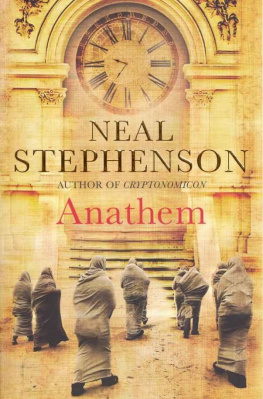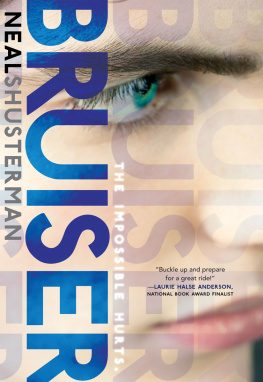Neal Snidow - Vista Del Mar: A Memoir of the Ordinary
Here you can read online Neal Snidow - Vista Del Mar: A Memoir of the Ordinary full text of the book (entire story) in english for free. Download pdf and epub, get meaning, cover and reviews about this ebook. year: 2016, publisher: Counterpoint, genre: Non-fiction / History. Description of the work, (preface) as well as reviews are available. Best literature library LitArk.com created for fans of good reading and offers a wide selection of genres:
Romance novel
Science fiction
Adventure
Detective
Science
History
Home and family
Prose
Art
Politics
Computer
Non-fiction
Religion
Business
Children
Humor
Choose a favorite category and find really read worthwhile books. Enjoy immersion in the world of imagination, feel the emotions of the characters or learn something new for yourself, make an fascinating discovery.

- Book:Vista Del Mar: A Memoir of the Ordinary
- Author:
- Publisher:Counterpoint
- Genre:
- Year:2016
- Rating:4 / 5
- Favourites:Add to favourites
- Your mark:
- 80
- 1
- 2
- 3
- 4
- 5
Vista Del Mar: A Memoir of the Ordinary: summary, description and annotation
We offer to read an annotation, description, summary or preface (depends on what the author of the book "Vista Del Mar: A Memoir of the Ordinary" wrote himself). If you haven't found the necessary information about the book — write in the comments, we will try to find it.
Vista Del Mar: A Memoir of the Ordinary — read online for free the complete book (whole text) full work
Below is the text of the book, divided by pages. System saving the place of the last page read, allows you to conveniently read the book "Vista Del Mar: A Memoir of the Ordinary" online for free, without having to search again every time where you left off. Put a bookmark, and you can go to the page where you finished reading at any time.
Font size:
Interval:
Bookmark:



Copyright 2016 Neal Snidow
All rights reserved under International and Pan-American Copyright Conventions. No part of this book may be used or reproduced in any manner whatsoever without written permission from the publisher, except in the case of brief quotations embodied in critical articles and reviews.
Library of Congress Cataloging-in-Publication Data
Names: Snidow, Neal.
Title: Vista del Mar: a memoir of the ordinary / Neal Snidow.
Description: Berkeley, CA: Counterpoint Press, 2016.
Identifiers: LCCN 2015046445
Subjects: LCSH: Snidow, Neal. | Snidow, Neal--Family. | Snidow, Neal--Homes and haunts--California--Redondo Beach. | Redondo Beach (Calif.)--Biography. | Redondo Beach (Calif.)--Pictorial works. | Photography--Psychological aspects. | Childlessness--Psychological aspects. | Adoption--Psychological aspects. | Teachers--United States--Biography. | BISAC: BIOGRAPHY & AUTOBIOGRAPHY / Personal Memoirs.
Classification: LCC F869.R33 S65 2016 | DDC 979.4/93--dc23
LC record available at http://lccn.loc.gov/2015046445
Cover design by Kelly Winton
Interior design by Megan Jones Design
COUNTERPOINT
2560 Ninth Street, Suite 318
Berkeley, CA 94710
www.counterpointpress.com
Distributed by Publishers Group West
10 9 8 7 6 5 4 3 2 1
e-book ISBN 978-1-61902-806-7
From The Woodpile, Robert Frost
The view was all in lines
Straight up and down of tall slim trees
Too much alike to mark or name a place by
So as to say for certain I was here
Or somewhere else: I was just far from home.
This book dedicated with love to Debra and Caitlin,
My finders and guides back
Table of Contents
Contents

I N 1996 I began to make pictures of my hometown in Southern California. A beach town, it offered photogenic attractions like sunsets and views, but these werent what drew me. Instead, I chose as my subjects details of the suburbia in which I had grown up, apartment faades, backyards, bits of parks and schools, as well as odd, anonymous objectsrailings, fences, electric meters. Like my subjects, practically invisible myself in my middle-aged pursuits, I photographed these methodically from a tripod onto black-and-white film, a wordless man bent over the camera framing images of a retaining wall or ground littered with eucalyptus leaves.
Its hard to remember now why this project presented itself with such force, but one of the main causes would certainly have been the great grief my wife and I were then experiencing. After years of trying to have children, wed lost a horribly expensive in vitro pregnancy, our last chance, or so we felt, at being parents, and were devastated. A painful blankness took hold of life. My wife would come home from her work each day in what seemed to me a white, chalklike haze of hurt. As for me, on semester leave from my job teaching English, I had plenty of time to stew, and in a genteel, steady, and prodigious way, like the pale host of my Virginia forebears, Id drunk from March through May until I couldnt drink anymore. The drink, the triple Scotches doubled and trebled, had achieved its familiar tincture of depression, a permanent iris effect like a soiled copper wash at the edge of things, a sort of peripheral yellow the acid hue of development chemistry.
I felt deeply lost. Then, like a sudden punctuation mark, I felt a chest pain one afternoon while I was cooking dinner. I kept sauting onions, wondering what to do, but the pain didnt stop. At the emergency room, all tests for this fugitive heartache turned negative, but during the night I spent under observation in the hospital, the larger questions of mortalityof what Emerson called the lords of lifekept appearing as embodied dream figures in my half sleep, querulous old men losing their way to the bathroom, and strapping night nurses guiding them to their beds in loud, hectoring voices. At one point early in the morning, a strange woman strode from nowhere into the room as though in a James Thurber cartoon, looked brightly at me, and then at the patient heretofore hidden behind a screen in the next bed. Oh, you have to see this! she said, and cheerfully threw the curtain aside to reveal my absolute twin, a bearded middle-aged look-alike who grinned ecstatically at me like a lost brother before bursting into the stuttering baby talk of a stroke victim.
As a lifelong reader, it was disappointing in a time of crisis to see how little solace there was in this central activity of my personality. As if in a B movie, I could see a hand dipping fatefully into the motel nightstand for the Gideon Bible, therein to find that peace that passeth understanding in some psalm or other, but this melodramatic instant never arrived. Instead I continued to plow through my current book, something by the Jungian James Hillman. I was feeling the double bind of interest and frustration that talk about the soul brings to the soul in paineverything seems right enough, but none of it makes one feel any better. However, Hillman kept mentioning the images, and this puzzled me. I supposed he meant the pictures in dreams, but this felt incomplete, in the same way Hillmans whole effort, despite its brilliance, lacked some crucial efficacy, like out-of-date medicationperhaps even like the prodigious flow of J&B and Johnnie Walker Id been purchasing the last few months under the discreet liquid eyes of the East Indian convenience market manager and his sari-clad mother seated beside the newspaper racks. I let Hillmans book go idle, but the idea of pictures stayed with me, and as the summer came along, I thought I might go to Southern California to visit my mother and take some photos.
MY FIRST CALIFORNIA neighborhood, an area of apartment houses near the beach where my parents and I lived from 1953 to 1958, had always drawn me in a powerful way. We moved out of the apartments to a house in a subdivision three quarters of a mile off, where my mother still lived at this time, but my trips south would always include a visit to those older, beach-shabby but somehow luminous and magnetic blocks. There at the old apartment was my bedroom window, looking out onto the quiet street as it always had, the palm trees, the ocean just beyond at the end of the block with its same steady sound and light. I could imagine my younger self in there still, reading, painstakingly assembling a model plane in the perfect, breathing silence of the past. I could give him bits of lyrics, maybe Cupid, draw back your bow, or Im painting it blue, or even the Nat King Cole show from a distant room that would enfold my small mental cutout into its own depth like a View-Master or pop-up book, and yet I could never will this figure to look up or speak.

Occasionally, Id feel myself break through the present to something deeper, or perhaps fall through is a better figure: on my rambles I might be overwhelmed with a sudden sadness, a primal ache spread wide like noise between distant stations on the radio, or the sound of surf at night. This I understood in some way to be a truth of childhood. I never knew when this uncanny visit might come, and despite often badly needing assurance that the flat and denatured present was not the worlds last answer to whatever my question was, such glimpses could never be willed. But when they came, they came with force: pedaling over my old school grounds one day, I rolled idly toward a rusty backstop where we used to play ball only to feel my whole body start to shake with some ancient emotion; it was all I could do to keep my balance. All through this period the precinct of the apartments continued to exert its gravity until I finally had a dream in which I gazed down on the apartment from above, filled with the uncanny knowledge that here the work would continue.
Font size:
Interval:
Bookmark:
Similar books «Vista Del Mar: A Memoir of the Ordinary»
Look at similar books to Vista Del Mar: A Memoir of the Ordinary. We have selected literature similar in name and meaning in the hope of providing readers with more options to find new, interesting, not yet read works.
Discussion, reviews of the book Vista Del Mar: A Memoir of the Ordinary and just readers' own opinions. Leave your comments, write what you think about the work, its meaning or the main characters. Specify what exactly you liked and what you didn't like, and why you think so.










